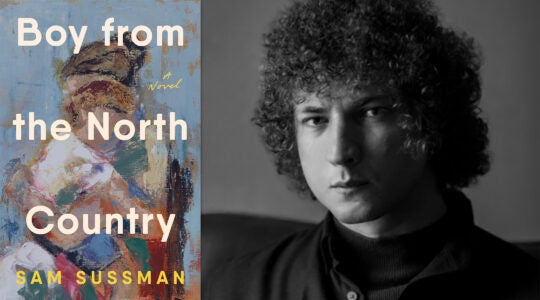Matti Friedman had a piece in Tablet yesterday defending the restrictive Hillel guidelines on Israel that were publicly rejected earlier this month by the board of the Swarthmore College chapter.
Friedman suggests that the cries of censorship against Hillel are misplaced and that it is perfectly valid to decline to invite non-Zionists and anti-Zionists into the Jewish discussion. He writes:
Would a Hillel be accused of censoring debate if it declined to host, say, a sympathetic talk about eugenics? Would a synagogue be considered closed-minded if it decided it would rather not invite, for example, a speaker who believes Judaism is a retrograde religion that should be banned by law? Or, to put it differently, if you think I’m a jerk, am I closed-minded if I don’t want to invite you to dinner?
It seems to me that if we penetrate to the heart of the matter we find the following question: Does the principle of freedom of speech require Jewish people to host debate about the destruction of the world’s largest Jewish community?
The answer, of course, is no. There is no obligation to entertain any point of view, and the refusal to host does not equate — as it often does, in the minds of those refused a soapbox — with the effort to silence.
But the comparison of what (one assumes) would be Hillel’s refusal to invite a supporter of eugenics to speak, or someone who thinks Judaism should be outlawed, has its limits. So far as I know, there is no Jewish constituency that supports social engineering through eugenics or wants the practice of Judaism to be declared illegal. There are, however, significant numbers Jews whose views on Israel don’t fall within the parameters decreed by Hillel yet who still want to be part of the community. The larger than usual crowd that came to Shabbat services at Swarthmore last Friday night is compelling evidence of that. Nonconformist views on Israel are held by people in the family. Support for eugenics? Not so much. (Friedman’s later comparison to African-Americans refusing to invite a Klan supporter to speak is even more absurd.)
According to its mission statement, Hillel exists to enable Jewish students of all backgrounds to explore and celebrate their Jewish identity, “to engage uninvolved Jewish students on their own terms,” and to empower students to define their Jewish lives in their own way. It says nothing about Israel. Nevertheless, Hillel is an avowedly pro-Israel organization. The FAQ section on its website lists as one of the organization’s goals enabling “every Jewish college student to develop a meaningful and enduring relationship to Israel and to Israelis.”
Those objectives are clearly in tension. And with its adoption of Israel guidelines, and most recently in its decision to lay down the law with respect to Swarthmore Hillel’s rejection of them, Hillel has chosen a way to balance those tensions that is likely to exclude some of those Jewish students it would presumably like to engage. Sure, non-Zionist and anti-Zionist Jews are welcome at Hillel — just don’t expect to be able to air your views about Israel. It’s a posture that reminds me a little of how some Orthodox Jews try to welcome gays by saying, Sure, you can come to shul, just don’t ever acknowledge your sexuality.
From what I remember about the zeal of college kids, that condition is unlikely to fly. As a Swarthmore Hillel board member told the Forward, “very, very progressive Jews” already don’t see Hillel as their home. Chances are, those kids — at Swarthmore and elsewhere — are not going to be part of organized Jewish life in their college years. Whether it admits it or not, Hillel is manifestly willing to lose those students to uphold a line on Israel that many American Jews reject.
So the question is not, as Friedman would have it, whether Hillel should be skewered for failing to entertain every point of view. The organization is well within its rights to determine who can and cannot speak under its roof. But in exercising that right, Hillel is effecting a trade-off between two aspects of its mission. Trade-offs may be unavoidable, but they are never cost-free.
JTA has documented Jewish history in real-time for over a century. Keep our journalism strong by joining us in supporting independent, award-winning reporting.





